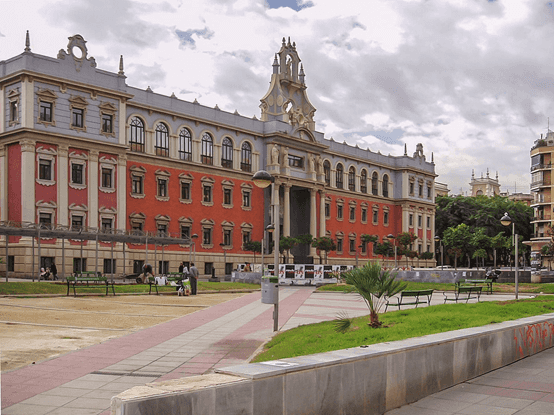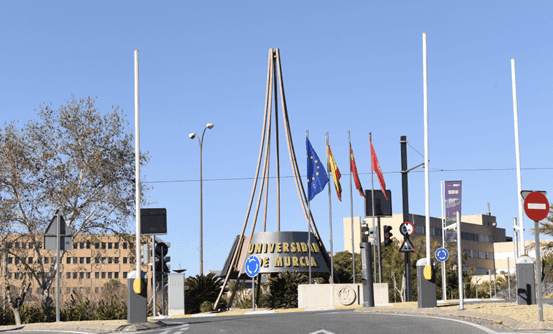Workshop Title:
Policies to Enhance Sustainable Development through the Green Economy
Date:
October 18th, 2024 (GMT+2)
Organizer:
Research group on economics at University of Murcia
Keywords:
- sustainability
- green economics
- pollution
- renewable energy
- policies
Workshop Chair:
Personal Bio:
Javier Cifuentes-Faura works in the Department of Financial Economics and Accounting at the University of Murcia (Spain). His lines of research include those related to public administration and economics, transparency, government, sustainability and green economics. He has published in more than 100 JCR impact journals, such as Public Performance & Management Review, Renewable Energy, Resources Policy, Local Government Studies, Economic Analysis and Policy or Journal of Policy Modeling. He is associate editor of several SSCI journals. He has participated in several international conferences, being invited to some of them as keynote speaker. He has been included in the prestigious Stanford University rankings as one of the 2% most influential researchers in the world in 2022.
Workshop Committee Members
Dr. Javier Cifuentes-Faura University of Murcia javier.cifuentes@um.es
Dr. Ursula Faura-Martínez University of Murcia faura@um.es
Dr. Matilde Lafuente-Lechuga University of Murcia mati@um.es
Workshop Description:
Background:
Pollution, environmental degradation or the ecological footprint are some of the major problems we face today. In 2015, the 2030 Agenda was approved and the 17 Sustainable Development Goals (SDGs) were enacted, with the idea of eradicating major environmental problems and addressing current challenges. Contributing to sustainability from economic policies is necessary and important, as well as knowing and detecting the needs and problems of citizens. It is also important to promote good practices by citizens, encourage the use of renewable energies and reduce the use of fossil fuels.
Goal/Rationale:
The aim of this conference is to understand trends in academic development, broaden research topics, strengthen academic research and debate, promote cooperation for sustainability and economic development research. Specifically, we will focus on analyzing pollution and energy crisis, one of the current problems in Europe, including Central and Eastern European states. We will assess the impact of economic growth and electricity prices for non-domestic consumers on pollution. We will study how renewable energies reduce CO2 emissions and GHG emissions in the energy industry. Also how foreign direct investment and electricity prices determine the reduction of GHG and CO2 emissions. Policies aimed at sustainable development and the promotion of renewable energies will be discussed and offered.
Scope and Information for Participants:
This workshop is aimed at any student and people interested in sustainable economy, although we will focus on students in their last academic years, and will discuss the latest economic developments and their impact. Aspects aimed at improving the sustainability of countries and contributing to achieving the Sustainable Development Goals will be discussed. The aim is to exchange experiences among participants and ideas, and to share achievements. It is also expected to be able to offer solutions, recommendations and discuss policies useful for political decision-makers in order to achieve sustainable development. It is expected in the coming years to reduce the carbon footprint, improve air quality and reduce pollution through efficient economic policies.
Venue:
C. Campus Universitario, 11, 30100 Murcia, Spain

VISA:
https://blsspainvisa.com/
In order to ensure the information is correct and up to date, there may be changes which we are not aware of. And different countries have different rules for the visa application. It is always a good idea to check the latest regulations in your country. This page just gives some general information of the visa application.
Types of Visas for Spain
According to the length of your stay in Spain, there are two main Spanish visa types:
- Spain Schengen visas. The Spain Schengen Visa is a short-term visa for Spain that gives the right to its visa holder to enter Spain, and remain there for a maximum of 90 days within a 180-day period. If you travelling to Spain for purposes foreseen by the Schengen visa and you are a national of the 62 countries under the Schengen visa regime, you do not need to apply for a Spain Schengen visa. Note that if you have previously been rejected from entering the Schengen territory visa-free, despite being a national of one of these countries, you will need to obtain a Schengen visa in order to be eligible to enter to Spain.
-
Spain long-stay visas. For staying in Spain for a period of longer than three months.
Depending on the long-stay visa type you apply for, you may also be authorized to work in
Spain. Only the nationals of the following are exempt from applying for these visas:
- European Union member countries.
- Norway
- Iceland
- Liechtenstein
- Switzerland
How to Apply for a Spain Visa?
To apply for a Spain visa, follow the steps given below:
- Fill in the right visa application form.
- Collect the required documents.
- Make a visa appointment.
- Attend the visa interview and submit your biometrics.
- Pay the visa fee.
After you complete all these steps, you shall wait for the processing of your visa. You will receive an answer to your application, as soon as the processing is completed.
When is the Best Time to Apply for a Spanish Visa?
As Spain is a member country of the Schengen area, it applies the Schengen visa rules to travelers seeking to enter its territory. Thus, when applying for a Spain visa, make sure you submit your application within the given time frame:
- The earliest: Six months before the date of your planned departure to Spain.
- The latest: Two weeks before the intended date of travel to Spain:
- Recommended: at least three weeks prior to your trip, so you can avoid any possible delay by the embassy.
Where Can I Apply for a Spain Visa?
Spain has a very strict system of visa submission and processing. As a result, visa submission is regulated by Spain in every world country. Thus, depending on the country you live in, you may have to submit your visa application at the:
- Spanish consulate.
- A Visa application center like TLS Contact, VFS Global or BLS International, to which Spain has outsourced visa submission in your country of residence.
NOTICE:
Should your application be denied, the organizing committee cannot change the decision of visa officer, nor will ICEMGD engage in discussion or correspondence with the visa application center on behalf of the applicant. The registration fee CANNOT be refunded when the VISA application of individual being denied.
Attend in person:
If you want to attend the workshop on-site, please email the Conference Committee: info@icemgd.org.












